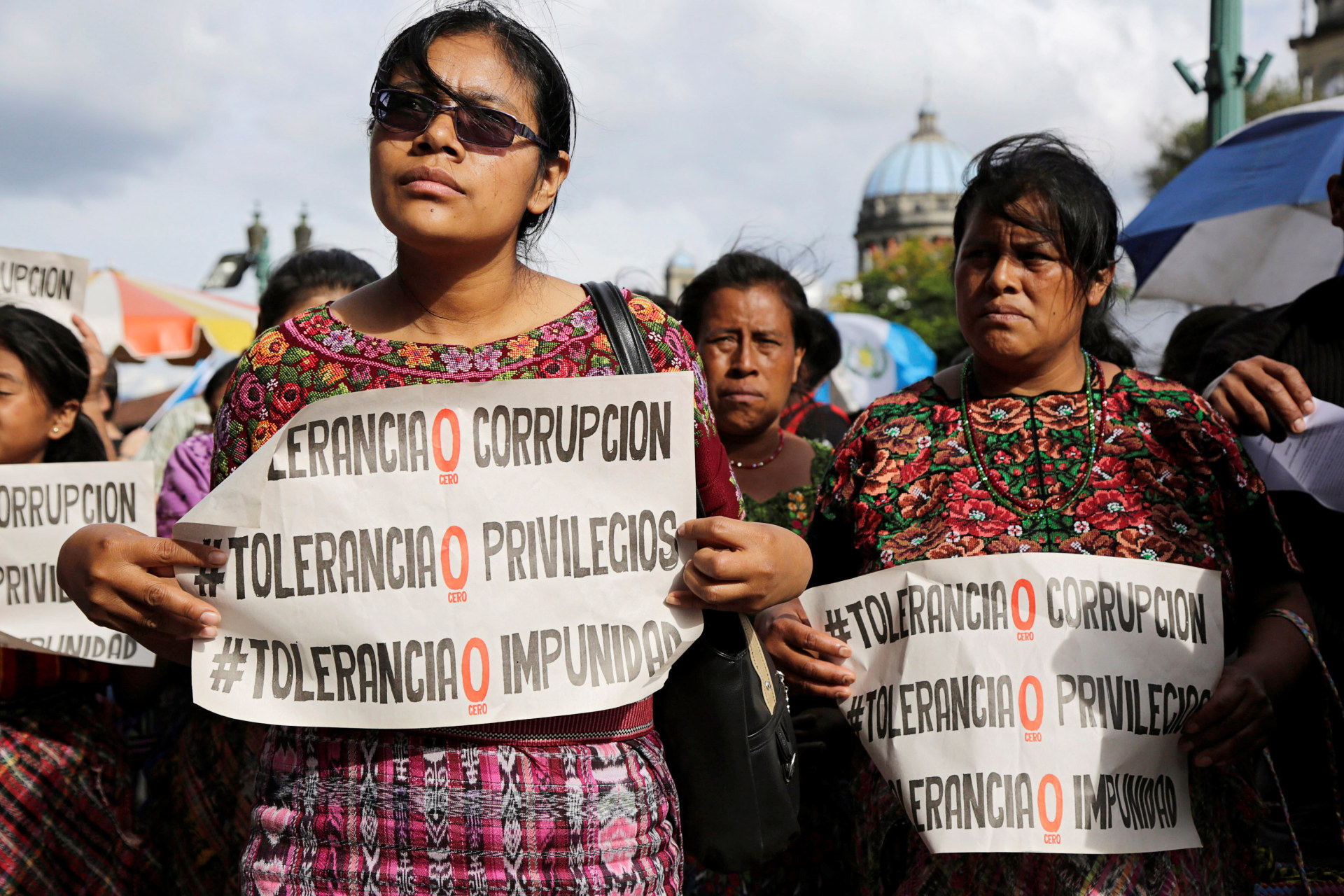Corruption and Gender Inequality in the Age of #MeToo
Panelists at CFR roundtable Corruption, Gender Inequality, and the #MeToo Movement addressed the need to mainstream gender into anti-corruption efforts and discussed the impact of gendered forms of corruption, such as “sextortion”—a term that describes the abuse of power to obtain sexual benefits.

By experts and staff
- Published
By
- Caroline Bettinger-Lopez
- Guest Blogger for Women Around the World
This blog post is co-authored with Rebecca Hughes, research associate in the women and foreign policy program
Last fall, women and girls from all over the world shattered the silence around sexual harassment and assault when they proclaimed, “This has happened to me too.” The #MeToo movement pushed long-ignored realties to the forefront. It demonstrated that these phenomena are as common as they are devastating, and brought attention to the ways in which people in positions of power abuse their authority. The movement has also created an opportune moment to explore the interplay between corruption and gender.
In early June, Marwa Fatafta and Nancy Hendry spoke at a Council on Foreign Relations’ (CFR) roundtable, Corruption, Gender Inequality, and the #MeToo Movement. Fatafta is Transparency International’s (TI) regional advisor for the Middle East and North Africa, and Hendry is a senior advisor to the International Association of Women Judges (IAWJ). Caroline Bettinger-López, an adjunct senior fellow with CFR’s women and foreign policy program and one of this piece’s coauthors, moderated the discussion. Panelists and participants addressed the need to mainstream gender into anti-corruption efforts and discussed the impact of gendered forms of corruption, such as “sextortion”—a term coined by the IAWJ to describe the abuse of power to obtain sexual benefits.
The Cost of Corruption
At the roundtable’s outset, Fatafta defined corruption as “the abuse of entrusted power and authority for private gain.” Corruption’s corrosive impact cannot be overstated. The World Bank estimates that businesses and individuals pay $1.5 trillion in bribes each year. International institutions and governments understand corruption as a challenge to prosperity, development, and stability, and included a commitment to “substantially reduce corruption and bribery in all forms” in the Sustainable Development Goals. Furthermore, research shows that corruption reinforces existing inequalities by disproportionately burdening the poor and marginalized.
Gendered Forms of Corruption - Sextortion
The IAWJ has sought to raise awareness about and address gendered forms of corruption. Hendry explained, how the organization heard stories about border guards in Central America who demanded sexual favors from women migrants, and prison guards in Uganda who demanded sexual favors from female visitors in return for delivering food and medicine to inmates. As the stories trickled in from different sectors all over the world, and the IAWJ came to understand that they were “part of a broad pattern of abuse of power for the purposes of sexual exploitation.”
Yet, there was no shared vocabulary to discuss the problem. As a first step in addressing the issue, IAWJ coined the term “sextortion” and defined it as “the abuse of power to obtain a sexual benefit of advantage.” Sextortion has four elements: (1) The perpetrator must occupy a position of authority; (2) The perpetrator must abuse the authority by endeavoring to exact, or by accepting a quid pro quo exchange; (3) The quid pro quo exchange has a sexual characteristic; and (4) The attempt or exchange must rely on the “coercive power of authority rather than physical violence or force to obtain sexual favors.”
Next Steps for Addressing Sextortion
Both Fatafta and Hendry emphasized that if governments and international organizations fail to recognize and address gendered forms of corruption, they will they fail to protect women and girls from exploitation and eliminate corruption. The #MeToo movement has created an opportunity for the anti-corruption community to consider how it can better address gendered forms of corruption.
A first step is to improve data collection on gendered forms of corruption and to empower people to recognize and report it. Though evidence suggests that sextortion is prevalent, lack of data has made it difficult to determine its exact nature and scope. Corruption measurement tools should be adjusted to collect sex disaggregated data, which will help reveal the differential impact of corruption on women and men. Additionally, international and local actors should partner to ensure that communities are able to recognize, report, and respond to sextortion. Women and girls must be educated about their rights and gendered forms of corruption, and local leaders must be equipped to protect victims’ privacy and safety.
A second step is to mainstream gender into the UN Convention Against Corruption (UNCAC). Fatafta highlighted how the UNCAC views corruption through an economic lens and fails to address its human rights and gender components. The Eighth Session of the Conference of States Parties to the UNCAC will take place in 2019. The conference presents an opportunity for civil society organizations to push states to sponsor and adopt a resolution on incorporating gender into the agreement and its implementing programs.
A third step is for anti-corruption and women’s organizations to broaden the corruption dialogue. Individual organizations can partner on projects and mainstream gender and anti-corruption perspectives into their language, programs, and initiatives.
Sextortion in the Age of #MeToo
There have always been gendered forms of corruption, but historically anti-corruption efforts have failed to recognize and address them. Hopefully, as the #MeToo movement continues to shed light on the many ways in which people in positions of power abuse their authority for sexual benefits, international organizations and governments will step up their efforts to broaden corruption dialogues and initiatives to include a gender perspective.